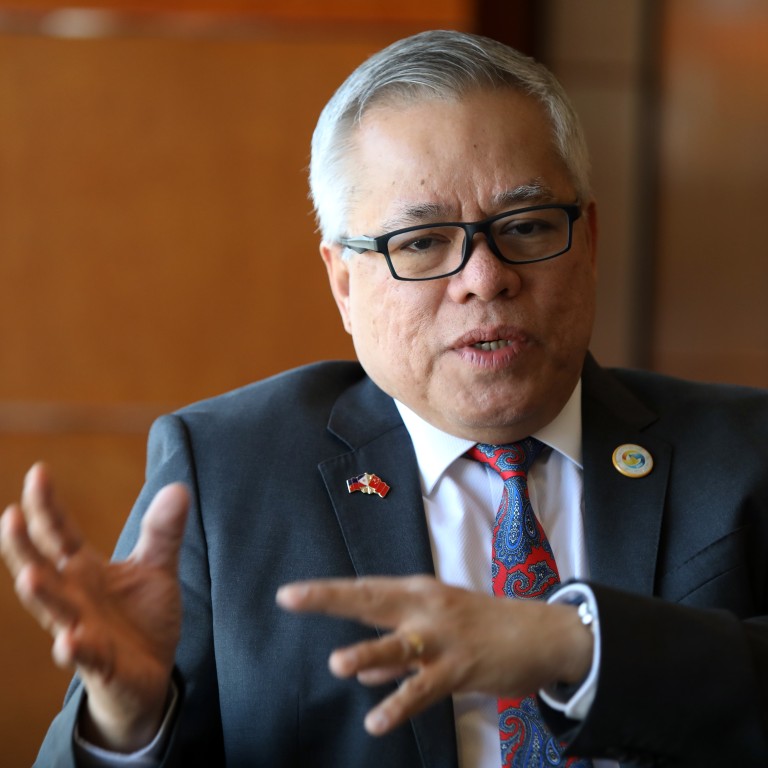
Exclusive | Philippines open for business with China, but stands firm on insisting Beijing respects its sovereignty: trade secretary
- Speaking before the Belt and Road Forum, Ramon Lopez says China has not been an aggressor, but any threat to its jurisdiction might affect bilateral trade ties
- This month, President Rodrigo Duterte threatened military action after Beijing let hundreds of vessels sail near a Philippine-claimed island in South China Sea
“The President, many Filipinos and myself would make sure there is mutual respect for sovereignty. That is what we should maintain as good friends,” Lopez told the South China Morning Post in an exclusive interview.
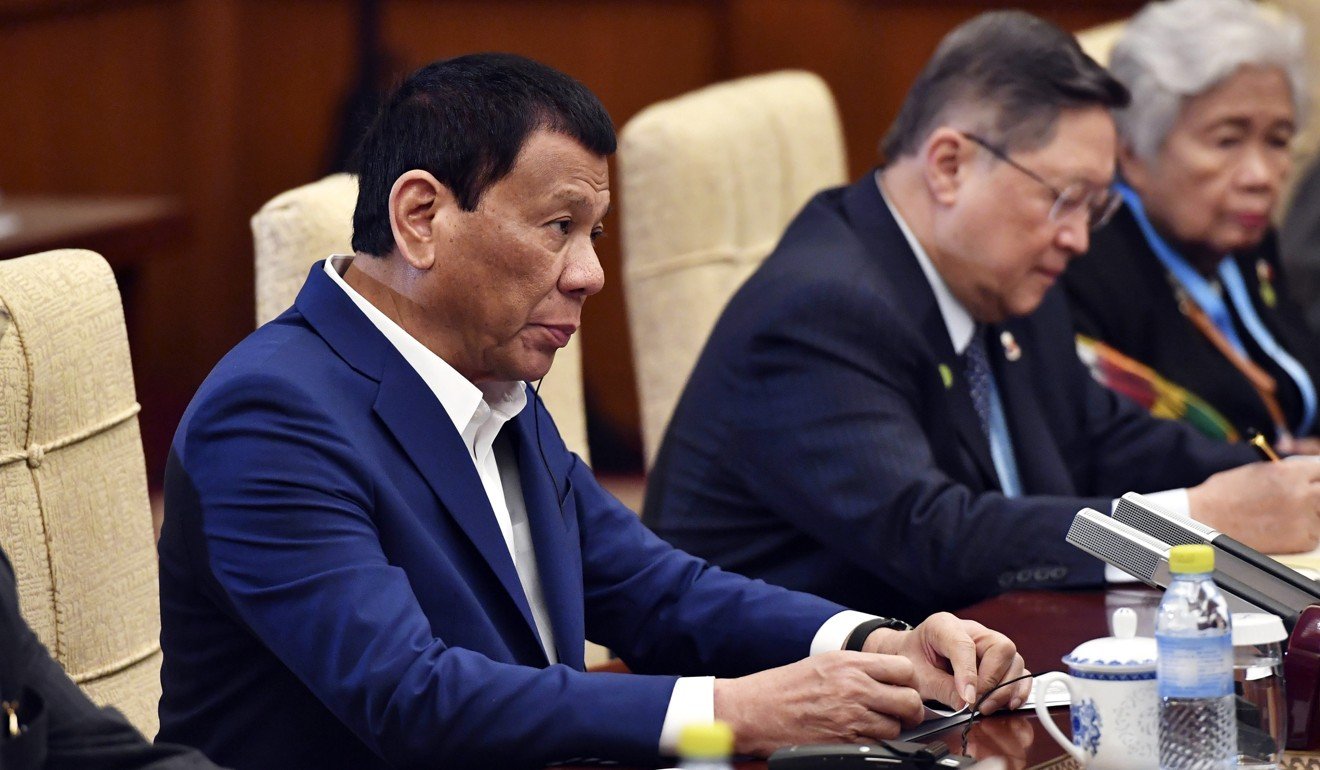
He added he was confident any tensions over sovereignty issues could be ironed out before matters escalated, but “any threat on that particular aspect … might even affect trade relationship improvements we have gained so far”.
Why Filipinos fear a Chinese military takeover of a bankrupt shipbuilder’s dockyard in Subic Bay
Lopez spoke of how the Philippines and China had been neighbours for centuries.
“China has not been an aggressor, really, that’s my personal view, and we’ve not experienced China as a colonial power invading countries.
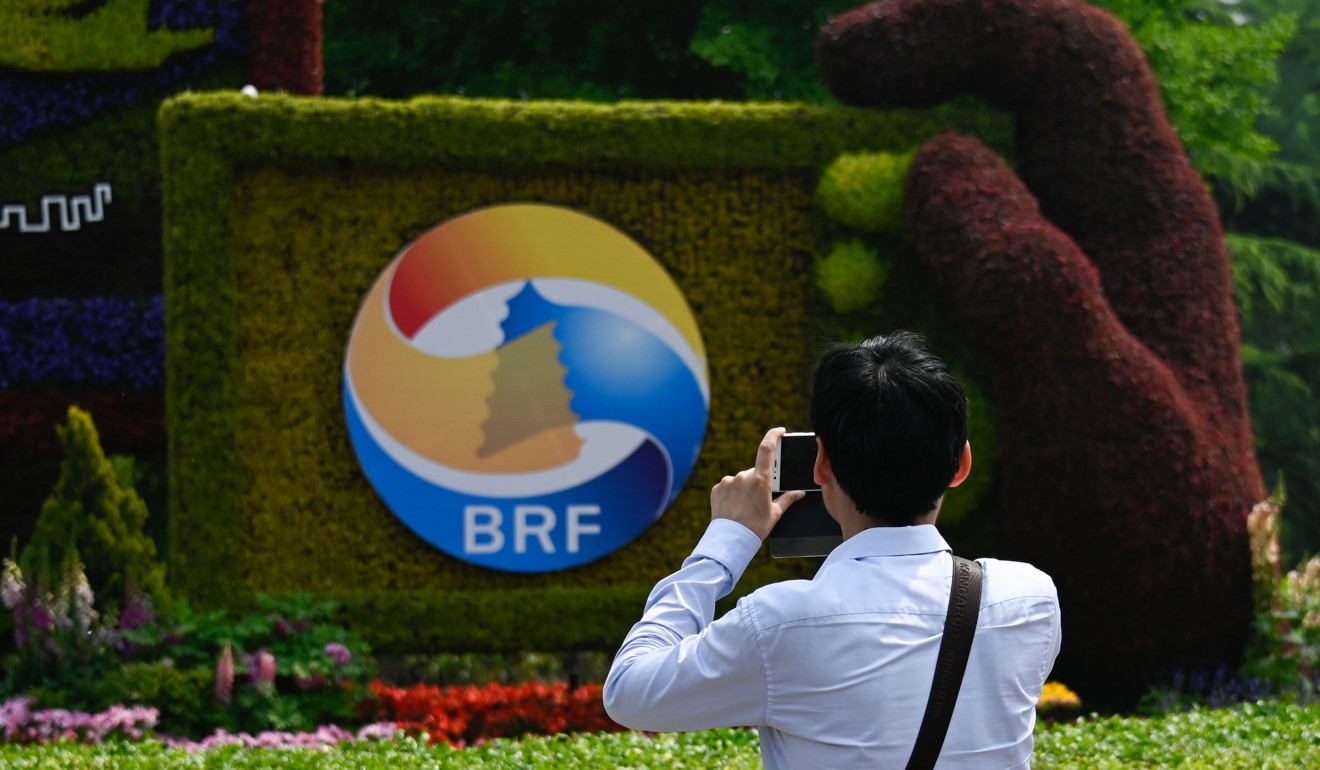
About 40 state leaders are expected to attend the three-day meeting and the Philippines has brought a high-powered delegation, comprising several ministers and about 190 business leaders.
China pledged US$930 million in investments in the Philippines last year, making it the country’s top foreign investor in a continuation of warming bilateral ties since Duterte took office in 2016.
On Thursday, Duterte and Xi signed several bilateral agreements including Chinese grants to help the Philippines in its ongoing war against drugs.
Duterte tries to smooth over South China Sea tensions in Xi Jinping meeting
On Friday, some 18 agreements worth more than US$18 billion across industries such as food, hydroelectric power, infrastructure, tourism and industrial estates are expected to be signed. They will create over 22,000 jobs, Lopez said.
He added that the Philippines wanted as many Chinese manufacturers as possible to set up shop in the country to grow exports and correct its yawning trade deficit, which grew 52 per cent last year from 2017 to a record US$41.44 billion.
This was largely due to hunger for Chinese imports as the Philippines’ economy grew, Lopez said. For example, in February this year, the Philippines imported US$1.6 billion of Chinese goods but only exported products worth US$664 million.
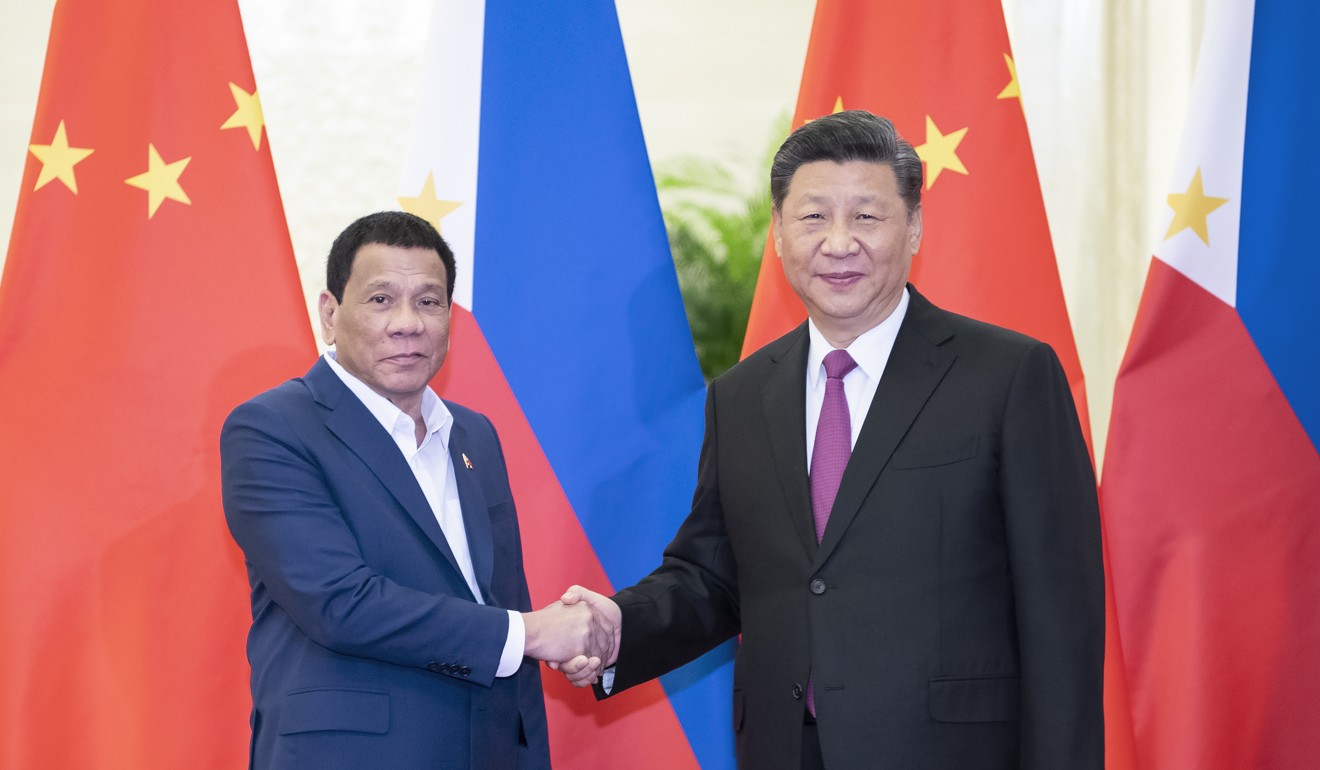
Manila was banking on Xi’s pledge to achieve more balance in the trading relationship, and this meant “China will have to buy more from the Philippines”, Lopez said.
Asked what the country wanted to sell more of, he quipped: “Everything!”
What China might need though, Lopez said, besides minerals such as copper ore that it already buys from the Philippines, would be agricultural products such as pineapples, bananas, mangoes and “higher value-added” items like processed or dried mangoes or even aerospace and automotive parts that the country already exports elsewhere.
Duterte says China’s claim to disputed islands’ airspace could be ‘flashpoint’ for conflict
Domestically, the government will look into liberalising its negative investment list to woo more foreign investors to the public utilities and retail sectors, for example, including Chinese companies.
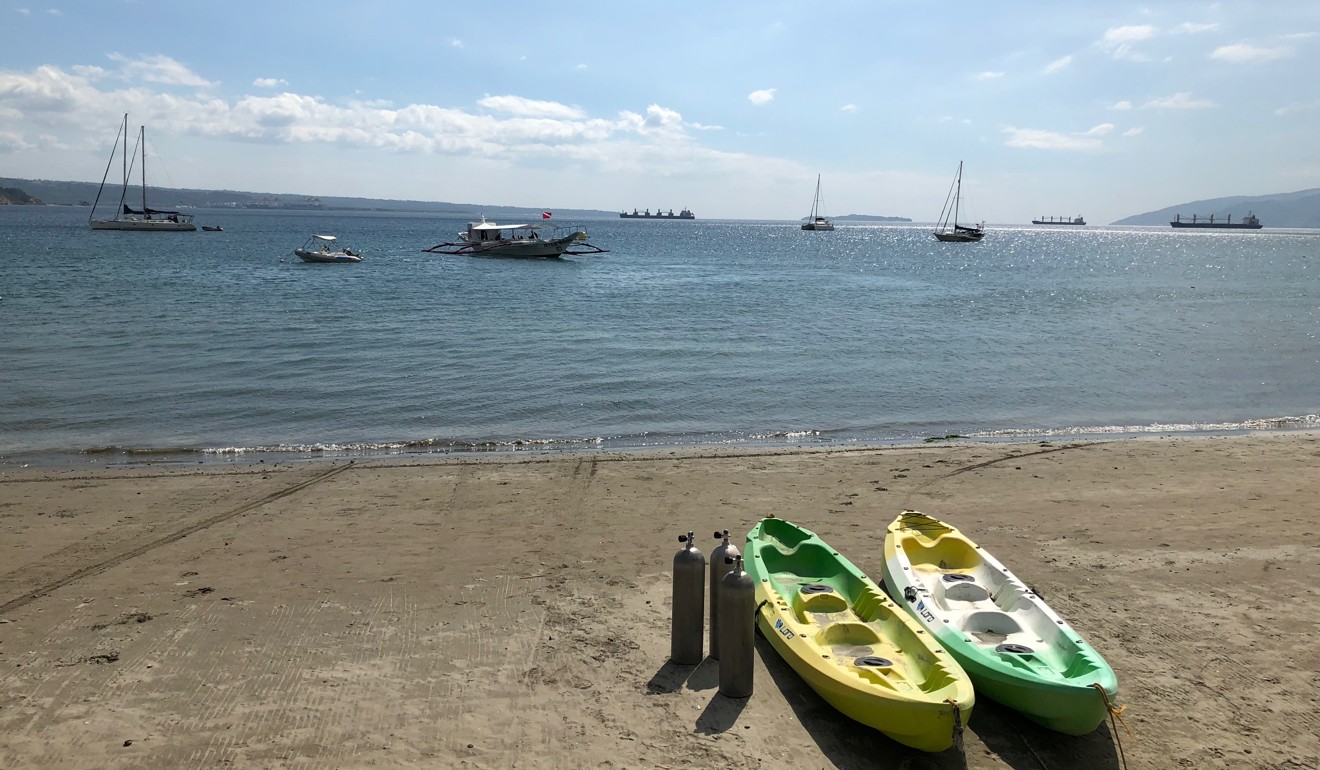
Subic Bay is about 270km west of Scarborough Shoal, which is claimed by both Manila and Beijing. An international tribunal in 2016 rejected Beijing’s position.
“We did not make any statement barring Chinese or any nationality from bidding,” Lopez told Reuters.
To the South China Morning Post, he said: “There is greater sensitivity when it comes to China, Chinese workers, Chinese investments, but these are no different from other investments coming in.
“As a developing country we welcome all this. As long as they are in the right places, [not in] illegal or illicit activities.”
Philippine President Rodrigo Duterte tells China to ‘lay off’ island in disputed South China Sea
Parag Khanna, a keen observer of Asean-China relations, said recent developments showed the Philippines was “learning to play the back-and-forth with Beijing rather than just conceding on the island disputes in exchange for infrastructure”.
“As with other countries, it is blocking China from important, strategic, and lucrative projects in favour of others in order to balance out its dependencies among multiple investors and powers,” he said.
“They may or may not resolve their maritime disputes, but my argument has long been that Asian governments are sufficiently pragmatic to manage the necessary economic integration versus the territorial rivalries they are keeping at bay.”


